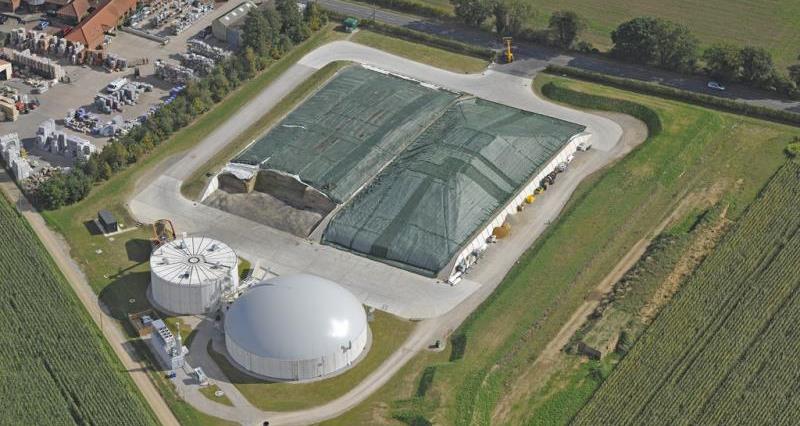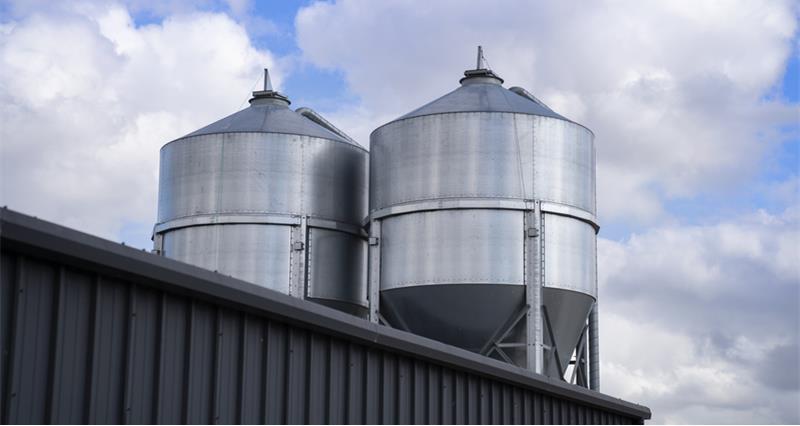What are Anaerobic Digestion plants?
AD plants provide an effective and ‘green’ way of recycling farm waste, food waste and water treatment by-products, such as manure, crop discards and sewage, which are converted into more useable products by anaerobic digestion.
The key product produced from AD plants is biomethane, which can be fed into the gas grid, used to power farm machinery, or converted to electricity and heat on site; as well as digestate which offers a consistent alternative source of crop nutrients, displacing artificial fertilisers.
Risks involved with Anaerobic Digestion
The presence of large amount of flammable gas in pipework and vessels is not a common farming risk. It requires careful and planned management.
If you have an AD plant on farm, you need to comply with:
- The DSEAR (Dangerous Substances and Explosive Atmosphere Regulations 2002): HSE | The Dangerous Substances and Explosive Atmospheres Regulations 2002.
- Hazardous area classification: HSE | Hazardous Area Classification and Control of Ignition Sources.
- Regulations on confined spaces: HSE | Introduction to working in confined spaces.

Maintenance and hot work
AD Plants process potentially hazardous materials and produce high levels of methane gas. With this in mind, safety should be the highest priority.
In December 2020, four people died in an explosion at an AD plant in Avonmouth operated by Wessex Water. The plant processed human sewage. Following this, AD plants have become a key focus for HSE.
HSE have highlighted the two key concerns with non-compliance at AD plants:
- Poor management of maintenance activities and in particular the control of hot work (such as work involving the use of grinders and welding equipment)
- Deficiencies in the risk assessment required under DSEAR.
Any persons working on AD plants, whether they are small farm plants or industrial plants, need to be appropriately trained and aware of the regulations required to stay compliant.
Any maintenance should be completed by accredited contractors familiar with AD plants.
A full list of accredited contractors can be found on the website of the Anaerobic Digestion and Bioresources Association: ADBA | Industry directory.
Further safety considerations and tips
Bacteria in biowaste produces “slurry gas”. This is formed from methane, carbon dioxide, ammonia and hydrogen sulphide, which are all produced by bacteria during the decomposition of waste. These gases are unpleasant; some are poisonous and flammable.
Some of the toxic gases produced can take time to disperse from AD tanks. If emptying the tanks for maintenance purposes, leave at least 3 days between emptying the tanks and re-entering to complete any necessary checks and maintenance.
Hydrogen Sulphide in particular is a significant safety concern. It is often not noticeable and can cause death when inhaled in small quantities.
The below guidance is intended to help you avoid unnecessary risks when working with AD plants:
- Use appropriate, working respiratory protective equipment and ensure training on how to use it has been completed
- Ensure your emergency procedure is up to date and that everyone working in the AD plant is familiar with it.
- If you must enter the tanks, use a working harness and fixed lifeline.
- Keep the area working area well-ventilated; plan work for a windy day to reduce accumulation of toxic gases.
- Do not complete the work without notifying others of what you are doing in case of emergency.
- Complete the work with the minimum number of people present in case of settling toxic gases.
- Avoid sparks and naked flames.
- Use working gas detection and monitoring equipment.
- Ensure there are no points where someone could fall into the tanks.
Health and safety training
ADBA runs regular in-person and online courses about AD plant compliance, including on health and safety. You can find upcoming training events at: ABDA | Training and Events
More farm safety content from NFUonline:


